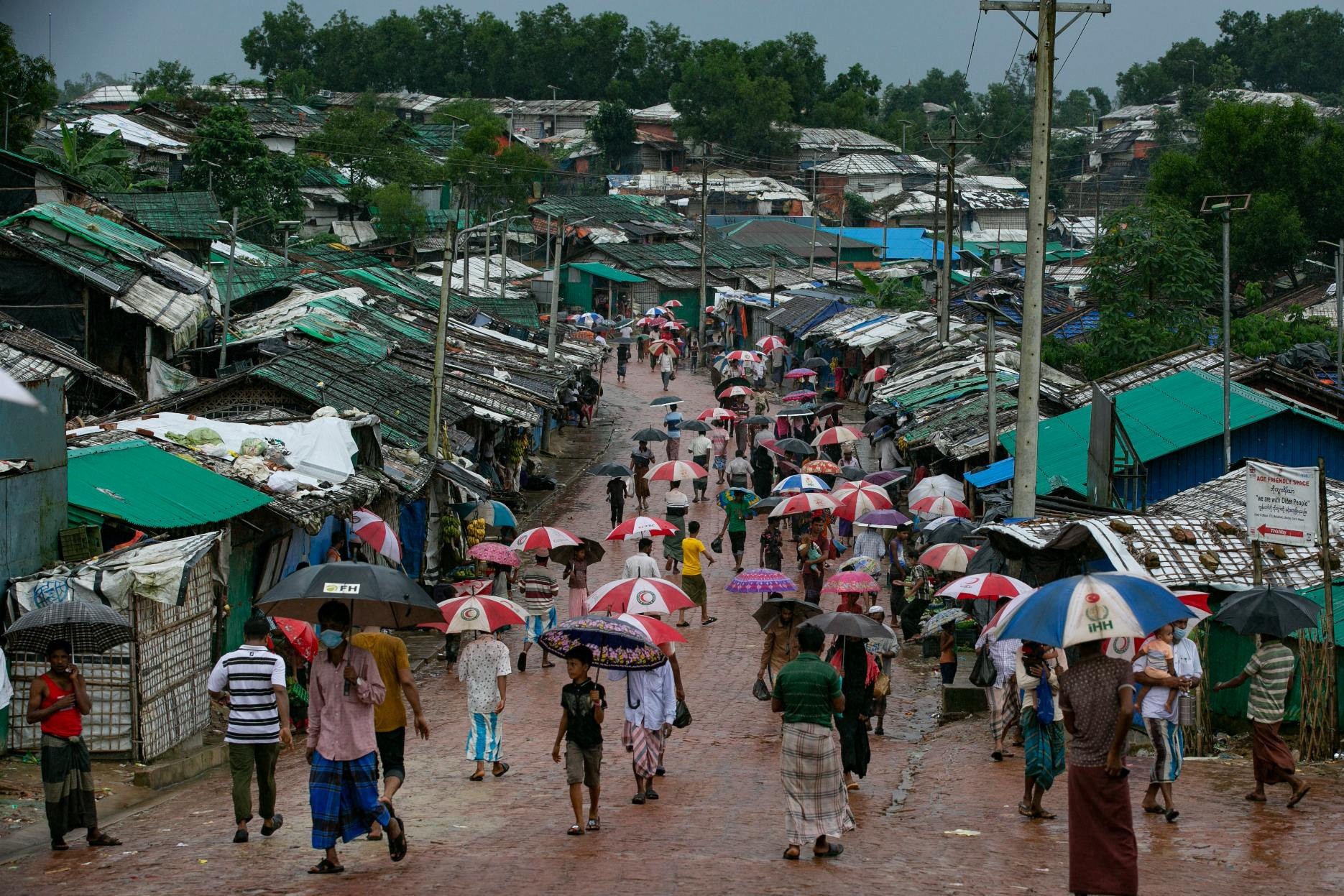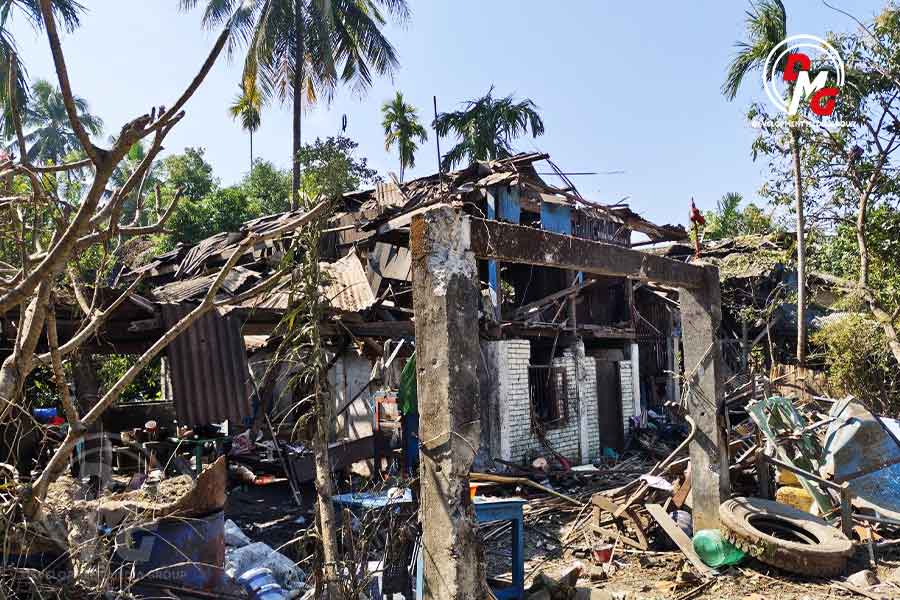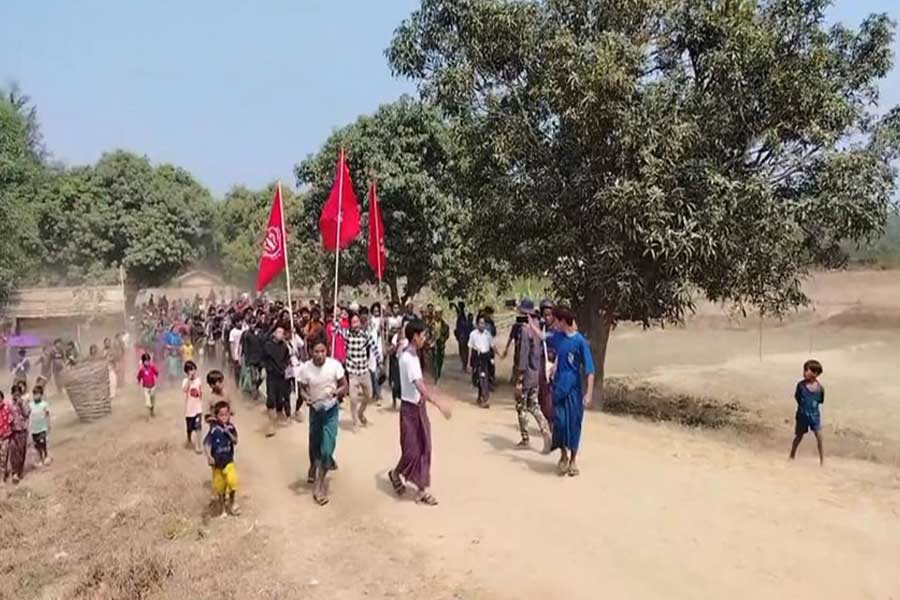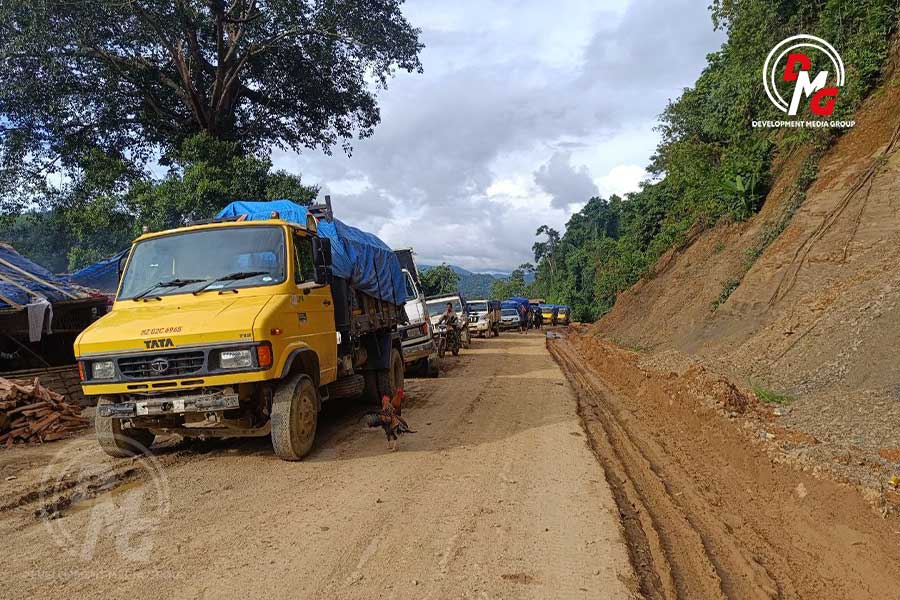- Two civilians killed, two injured in junta airstrike on Ramree village
- Bo Nagar’s defection raises security fears for resistance forces in Myanmar’s heartland
- Weekly Highlights from Arakan State (Feb 2 to 8, 2026)
- Freedom of expression curtailed in resistance-controlled areas, report finds
- Conflict leaves Arakan’s historic pagodas in ruins as restoration stalls
WFP to further cut aid to Muslim refugees in Bangladesh
In March, the UN agency reduced the monthly allowance from US$12 to US$10 per refugee. As of June, the agency will only provide US$8 per month.
11 May 2023

DMG Newsroom
11 May 2023, Sittwe
The World Food Programme (WFP) will further cut food supplies for Muslim refugees from Arakan State who are currently living in Bangladesh, according to refugees.
In March, the UN agency reduced the monthly allowance from US$12 to US$10 per refugee. As of June, the agency will only provide US$8 per month.
“In the last week of last month, the WFP told refugees that it would only give US$8 as of June. We refugees will suffer from greater hardships,” said Ko Karmal from the Kutupalong refugee camp in Bangladesh.
Muslim refugees also face restrictions on working, and most rely on food supplies provided by the United Nations and other aid agencies.
Ko Aung Myaing from Kutupalong refugee camp said: “We had to struggle even when they gave us $12. We can’t work. Eight dollars is just 840 Bangladeshi Taka. We will be going hungry, and face difficulties in other aspects of life. The cut is another blow to refugees who are already in trouble.”
Refugees have urged WFP not to further cut aid for them.
“We are already going hungry. Some have fled because of hardships. The situation will get worse if they cut relief supplies further. If possible, I want them not to reduce supplies,” said a woman refugee.
DMG was unable to reach WFP for comment about its plan to further cut food supplies.
WFP said on February 17 that it was forced to reduce food supplies for Muslim refugees because of funding shortages.
The WFP is currently short of US$125 million because donations have declined due to the Covid-19 pandemic, economic recession and conflicts around the world.
Some 700,000 Muslims fled to Bangladesh in the aftermath of the Myanmar military’s counter-insurgency operations following attacks on police outposts in Maungdaw in 2017.
















.jpg)
